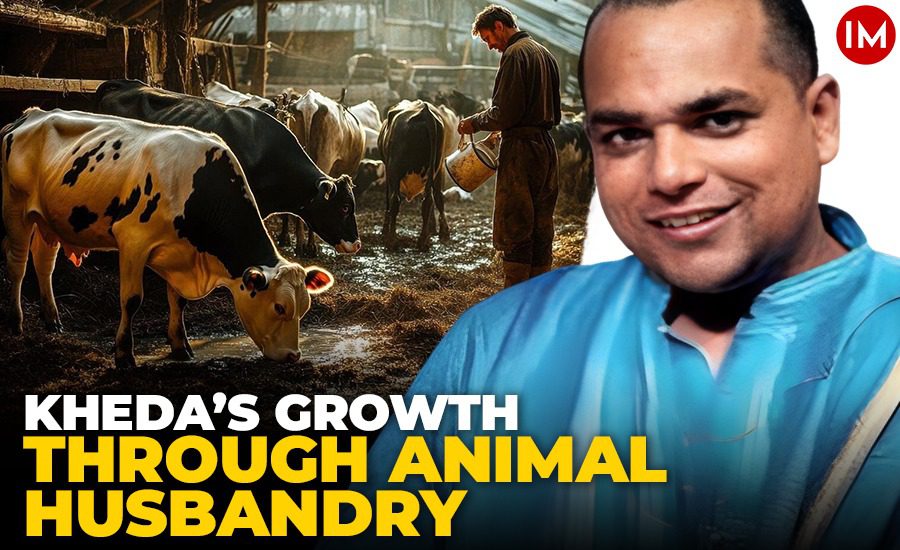In the heart of Gujarat, where the legacy of Amul began, IAS Amit Prakash Yadav serves as the Collector and District Magistrate of Kheda. A 2013-batch officer of the Gujarat cadre, Yadav’s commitment to the district’s development is deeply intertwined with its rich history in dairy and animal husbandry.
Kheda’s historical significance in the dairy sector, dating back to the time of Sardar Patel, provides a strong foundation for Yadav’s initiatives. Recognizing this, he aims to build upon existing infrastructure to further enhance the sector’s impact on the local economy.
EMPOWERING COMMUNITIES THROUGH ANIMAL HUSBANDRY
Understanding that a significant portion of Kheda’s population relies on farming, Yadav has focused on initiatives that strengthen the animal husbandry sector. By setting up specialized animal husbandry clinics and organizing seminars for veterinary doctors, he ensures that the community receives the necessary support and knowledge to thrive.
“We have converged grants from different sources, and I have personally supervised the initiatives. It is a long process, but we have laid a strong foundation for substantial change,” he shared with the media.
These efforts align closely with the Prime Minister’s vision of doubling farmers’ income, reflecting a commitment to both local and national development goals.
AIMING FOR SOCIAL STABILITY AND ECONOMIC GROWTH
Yadav envisions animal husbandry not just as an economic activity but as a means of social stability. With many families in Kheda engaged in livestock rearing, he sees the sector as having the potential to reduce migration, empower women, and create a stronger support system for livestock keepers.
“When men go to work in cities like Ahmedabad and Vadodara, women stay back and take care of the livestock. The aim is to reduce the costs of fodder, medicines, artificial insemination, and vaccinations, so that families can save at least ₹2,000-₹3,000 a month,” he stated.
This approach not only enhances economic stability but also fosters a sense of community and self-reliance among rural households.
A HOLISTIC APPROACH TO RURAL DEVELOPMENT
Beyond animal husbandry, Yadav’s leadership extends to various aspects of rural development. He has been actively involved in initiatives like the Sarus Crane Festival, emphasizing the importance of biodiversity and environmental conservation.
At the festival, he remarked, “Wetlands play a crucial role in preserving biodiversity and ensuring sustainability. The efforts taken by UPL and the local communities in conserving the Sarus Crane and its habitat are commendable.“
His multifaceted approach underscores a commitment to sustainable development that balances economic growth with environmental stewardship.
A LEGACY OF COMPASSION AND SERVICE
Yadav’s dedication extends beyond his professional responsibilities. In a heartwarming act of compassion, he and his wife, Chitra Yadav, adopted a 15-day-old girl who had been left motherless. Their decision to provide a loving home for the child reflects a deep sense of social responsibility and empathy.
This personal commitment to service mirrors his professional ethos, where community welfare and development are at the forefront of his endeavors.
PAVING THE WAY FOR A SUSTAINABLE FUTURE
IAS Amit Prakash Yadav’s initiatives in Kheda exemplify a holistic approach to rural development. By strengthening the animal husbandry sector, empowering women, reducing migration, and promoting environmental conservation, he is laying the groundwork for a prosperous and sustainable future for Kheda’s communities.
His work serves as a model for integrating tradition with innovation, demonstrating that a deep understanding of local heritage can drive meaningful and lasting change.
































